I have a confession to make: I did not play that many games this month. I participated in the playing of video games as a hobby about as much as I would any other month, but as far as new games are concerned, I flopped dramatically. March was the month where I tried to blast through the huge open world games and RPGs I’ve managed to accumulate this year, so I ended up spending an awful lot of time in a handful of games, which I’ll do my best to talk about here. Expect this post to be a short one though! (Editor note: it isn’t.)
What I Finished
It pains me to admit it, but I only managed to see the credits roll on one game this month: Persona 3 Reload.

I’m happy that I actually managed to finish it, because I was worried about burning out on the experience, but it remained engaging the whole way through and by the time I hit that devastating conclusion, it was like saying goodbye to an old friend for the last time. My experience playing through this title again has convinced me once and for all that Persona 3 is my favourite game in the series that I’ve yet played. I suppose by extension, that would make Persona 3 Reload my favourite Persona game by default, since it’s the best way to play the game in my opinion, which feels a little weird to say given that it’s so fresh in my mind, but I’m comfortable settling on that take.
In my last monthly roundup, I talked about my mixed feelings about this game, given its existence as a remake to a story I already knew. I talked about how retelling the same story again, no matter how well executed the changes or how shiny the new graphics may be, will always feel a little cold. This is especially true for a game like Persona 3, which has its flaws but is still ultimately a perfectly accessible game to modern audiences with a little patience. Case in point, I managed to play it to completion, and my tolerance for old game jank is unfortunately pretty low.

In his Persona 3 Reload review, Yahtzee Croshaw talked about his distaste for the current approach to remakes as a homogenisation of modern game sensibilities. The Resident Evil games are a good example; in attempting to recreate the older games, all with the exact same over-the-shoulder gameplay style, it erases some the history depicting in the evolution of those past titles. By remaking the old games, the suggestion is that they exist to replace those titles, especially since a lot of those games are still trapped in their respective console generations.
Tying this back to Persona 3, the version of the game this remake is recreating most directly, Persona 3 FES, is currently inaccessible to players on modern consoles. It only ever released on PS2 and PS3, the latter being download only, so who knows for how long the PS3 store will remain open to let people access the game at all. From a certain point of view, it is good that people in 2024 can experience this story, because it is an incredible one, but at the same time, I don’t see why the original game can’t simply be re-released on the new hardware.
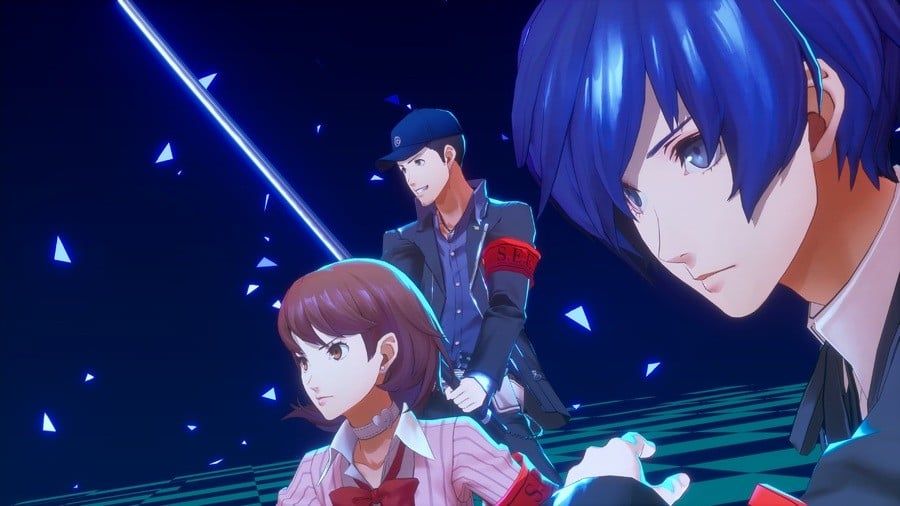
I know the reason Atlus don’t do this, of course. It’s the great evil of modern existence: the profit motive. It takes time, effort and money to port games to new systems, and in today’s industry landscape, those in charge don’t see the point in earning middling returns, when they could instead enjoy potentially huge profits with the release of a big, new, shiny game to round out their quarterlies. It’s shit and lame, and in a just world preservation of games would be a legal requirement for corporations who hoard art like evil dragons.
So, putting all that aside, is Persona 3 Reload worth playing? Yeah, it’s good.
What I Started
Again, I’m gonna be real here, I didn’t start that many games either. To be honest, much of this month I spent either playing games I started in February or playing the same three games extensively in March, and that’s about it. There were a lot of big releases this month that I wanted to try, which left little room for indie games or smaller releases in general. I’m hoping I’ll make up for that in April.
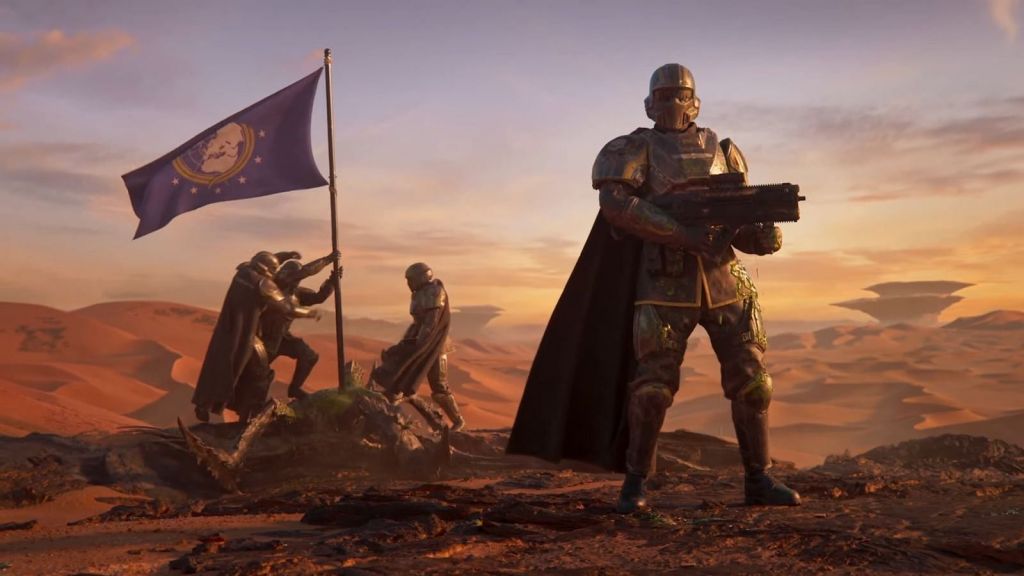
Before I get into the Big Three of the month, I’ll quickly chat about some games I played a bit but not extensively. I finally tried the game nobody will shut up about, Helldivers 2, and unsurprisingly, it’s a lot of fun. I’m a huge fan of the Starship Troopers-esque setting which sets the stage for some genuinely compelling worldbuilding if you’re paying attention.
On top of that, playing the game is a rock-and-rolling good time of course, but I was surprised at how vibey it is. Perhaps I haven’t delved deep enough into the higher difficulty, but I like how large the maps are, allowing for a shocking amount of silence as you traverse between firefights. It’s fun to soak in the atmosphere on whatever planet you visit, supported by gorgeous visuals and sound design. Every level looks quite distinct, and always beautiful, even with bullets and lasers flying overhead.
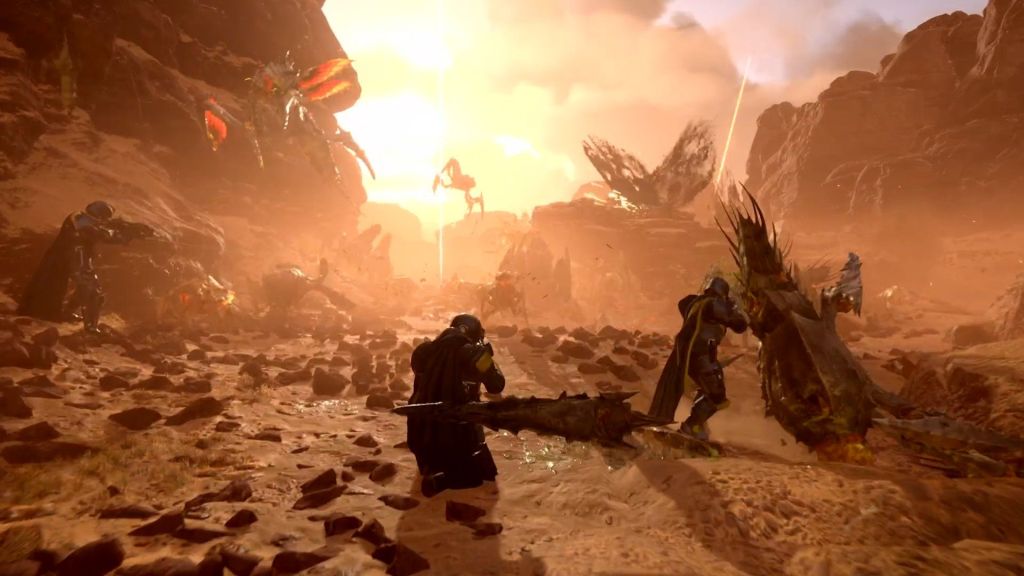
Admittedly, I’m always going to bounce off multiplayer games a bit so I haven’t played that much of Helldivers 2, but I’m fond of the collaborative nature of the game. Time and again, I’d team up with absolute strangers who would regularly show kindness to me, a relatively newbie, by gifting me advanced weapons and goofing around in between objectives. There’s a genuinely wonderful community built around this game, which I imagine stems from the lack of a PvP mode and zero incentives in killing one another. Whenever I died to friendly fire via misplaced orbital strike, I couldn’t help but laugh at the absurdity of seeing my little guy get blown into mush, and the thought of my teammate on the other end feeling terribly guilty for the situation. It’s a really silly, funny game if you let it be, and I enjoy it a lot!

I played some Ori and the Will of the Wisps briefly, since the near-released No Rest for the Wicked, Moon Studio’s latest work, had me thinking about how much I liked their previous game. Will of the Wisps is still really enjoyable. The movement is fluid and responsive, the art design breathtaking, and in a new turn of events for my purposes, it even runs beautifully on a Steam Deck! However, I’m playing this now following the news which came out about the dreadful working conditions and horrible management at Moon Studio, and I can’t help but feel a little icky playing it.
There is a certain conformity I feel in a lot of the design decisions here. NPCs are more plentiful in this sequel, and they talk to you and have quests to give, but to me, the Ori games have always thrived in their visual storytelling and storybook qualities. These new additions can’t help but feel a bit like they exist because they work in other games, rather than that they benefit the overall experience. On top of that, you’ve got new combat options, which actually lend themselves to the game quite nicely, but the inclusion of vendors and charms are very arbitrary to me. There’s a lot of fluff in Will of the Wisps where Blind Forest was comparatively cleaner and more focused, so the game has soured for me in that sense.
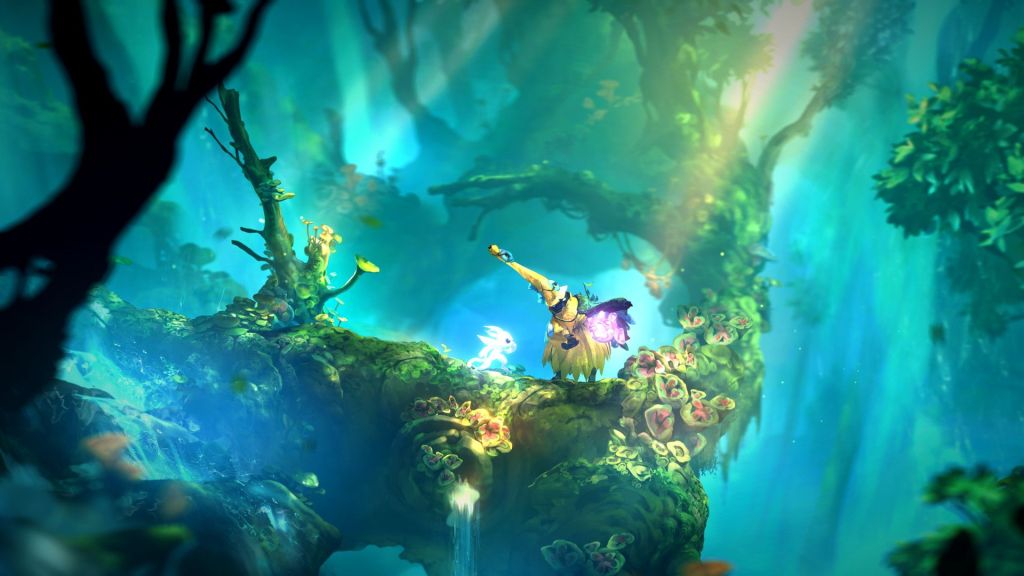
Again, it doesn’t help knowing the level of torment pushing this game out the door must have been. With their new game, No Rest for the Wicked, on the horizon, and co-founder of Moon Studio Thomas Mahler – a regular character in the many reports of unprofessional or offensive behaviour within the team – at the forefront of its gameplay reveal showcase, it’s safe to say that few lessons have been learned from the whole experience. These games are gorgeous works of art built by dozens of incredibly talented people across the globe, but my fear is that the decision-makers at the studio will hold these talents back. I’m going to watch this new game from a distance for now, I think.
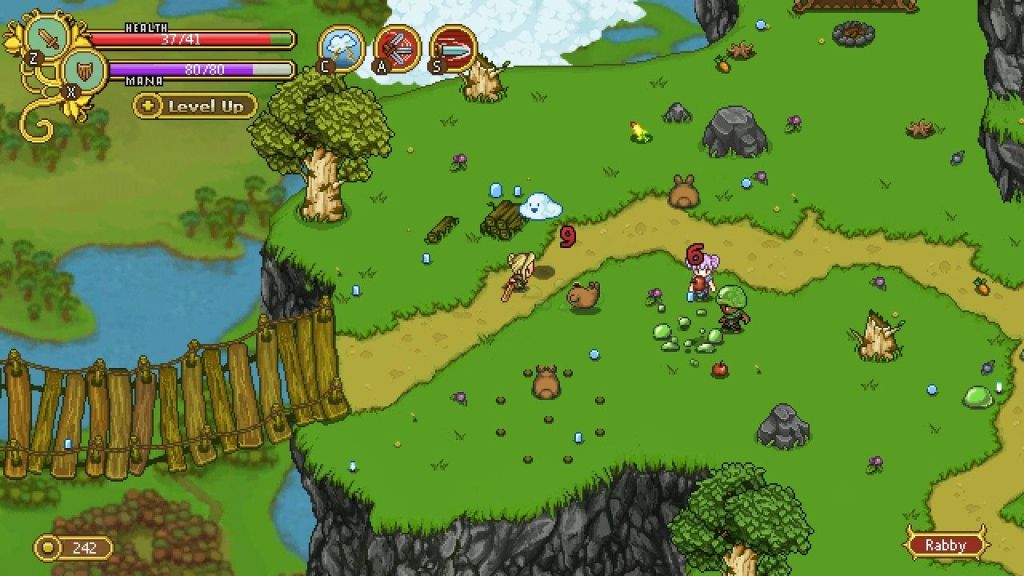
I also played a little bit of Secrets of Grindea, a game which recently left Early Access after many years in development, and unfortunately I wasn’t much a fan. It’s just not the kind of game I typically get on with. I wanted to give it a chance because I really like being surprised by low-radar indies, but quite quickly it became apparent to me that I didn’t like the feel of the combat, nor the frankly generic visuals, and a story which screamed standard medieval fantasy fare. Maybe I’m wrong, and I’m mischaracterising a potential banger. As it stands though, I had other recent games I was more interested in and didn’t want to spend my free time on a title I didn’t much care for. Speaking of…
Top of the March agenda was Final Fantasy VII Rebirth. I talked about FFVII Remake last month, but I’ll reiterate here that it’s solidly one of my favourite games, recency bias be damned. It’s just so brave in all its creative choices, not afraid to embrace sincerity and silliness and ends up being the coolest game maybe ever because of that. It doesn’t have an ounce of insecurity in its soul; it knows exactly what it wants to be and commits to its vision completely. Sure, there are certain sections which drag, but when the highs outshine those lows so intensely, it’s easy to forgive the shortcomings.
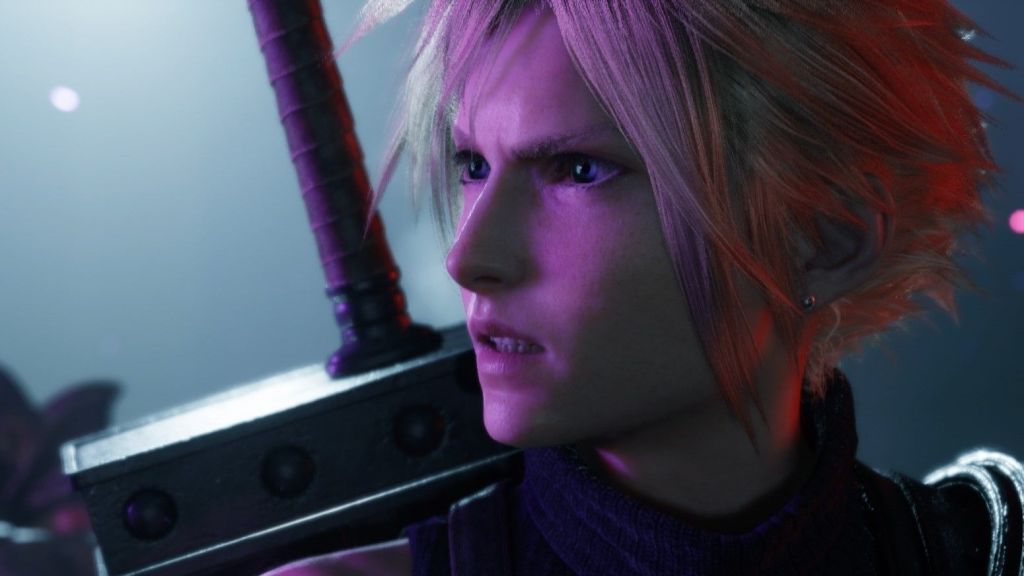
Rebirth is the follow-up, and I’m feeling a bit more mixed about it. On the one hand, everything I loved about Remake is still here and then some. You can’t go five minutes without entering some bizarre situation or adorable character moment that had me smiling like a dumbass.
I am just in love with the storytelling in these games. The characters are so easy to like, and their arcs are so compelling. Rebirth fleshes out some of the stories merely gestured at in Remake, and what comes of it are some beautiful scenes which inform the broader world. I haven’t played the original Final Fantasy VII, but if it’s anything like this new game, I can see why its core cast is so beloved. I mean, I already understood playing Remake, but Rebirth has solidified it as fact.
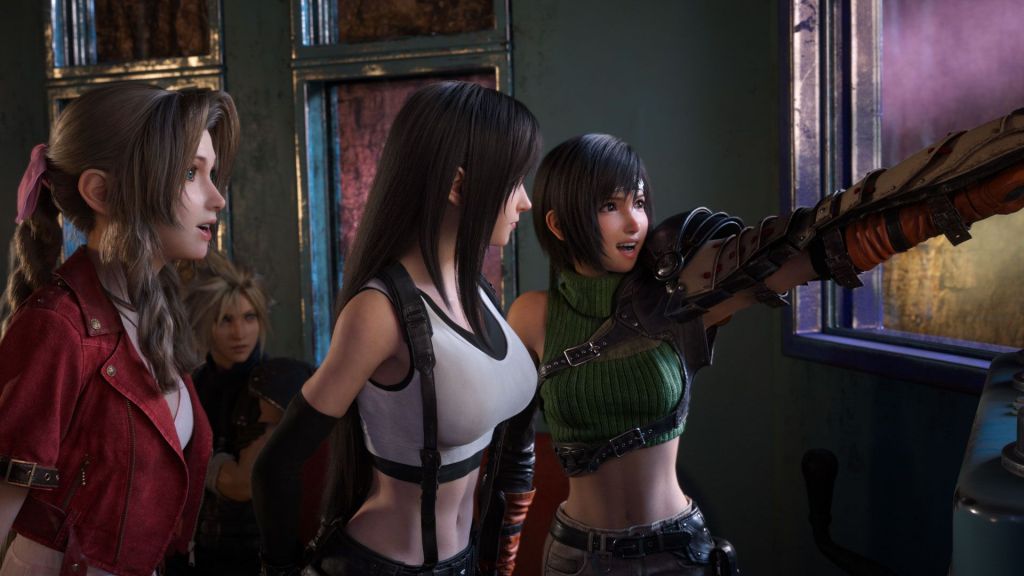
My problem with the game is its approach to the open world, and how boring it is. You’ll spend most of your time running from place to place, checking discoveries off a literal list, and with every seemingly new find, Chadley chimes in to explain to you exactly what it is and why it’s valuable to find more, rarely with any ambiguity. Never does it feel as though you’re crafting your own story by exploring the world, but instead plays just as strictly crafted as the linear missions.
I’d be fine with the game being more controlled like that – after all, Remake is designed this way and I love that game – but when your game is more than double the length of its predecessor, you really need to justify that length with consistently engaging material. That’s an enormous ask, of course – unrealistic, even – and I wouldn’t expect the entirety of Rebirth to maintain the same level of polish as its story segments, but in lieu of that breathtaking polish, there needs to be a different hook, and this game lacks in that regard.
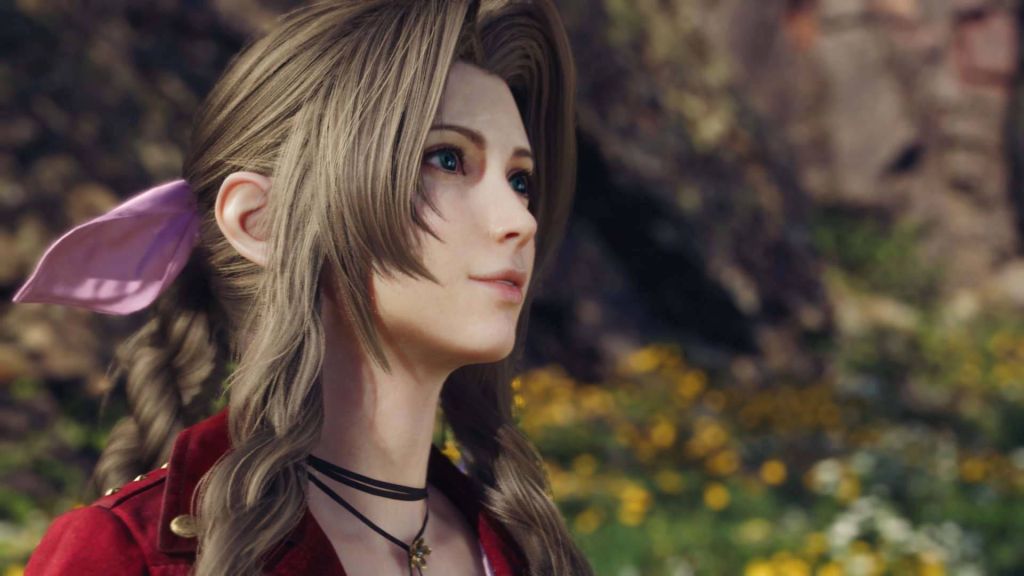
So I’m still making my way through Rebirth slowly but surely, but I decided to switch over to a different 2024 release: Team Ninja’s latest, Rise of the Ronin. Coming from the developers behind Nioh 2 and Wo Long, I was always gonna be on board for whatever this game ended up being. As such, I showed up Day One and it is so much fucking fun. Generally, I’m a narrative girlie. If a game’s story is strong, I’m more inclined to stick around to the credits than one without. Failing that, if the vibes are solid enough, I’ll be on board, but it takes a special game to achieve that. Rise of the Ronin is certainly one of those games.
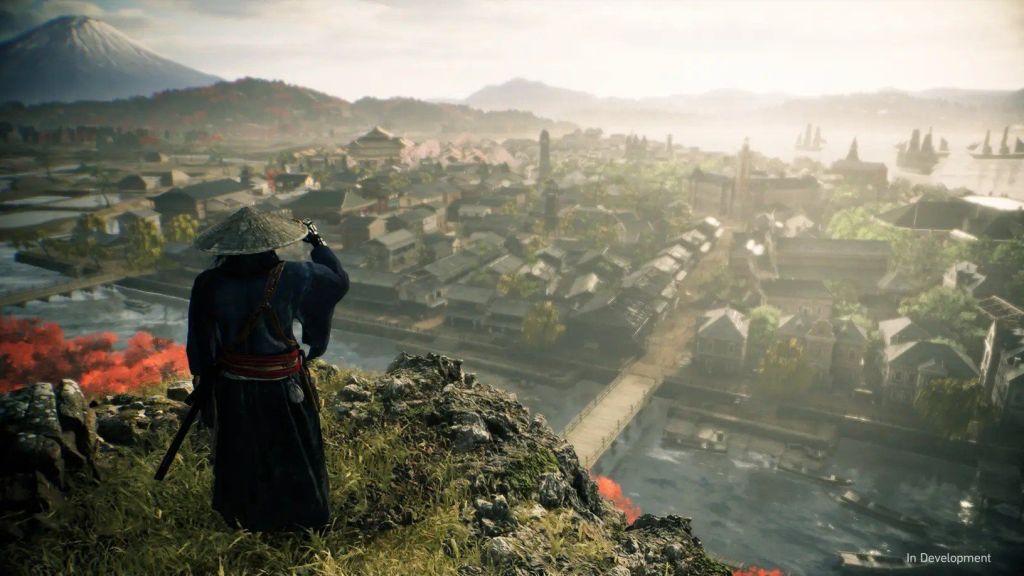
Not to say the story of Rise of the Ronin is lacking by any means. In fact, it’s pretty interesting, set in the industrial era where Japan is at the precipice of ushering in the rest of the world, and depicts the struggling factions who each have their own takes on what is best for the country. On the one side, you’ve got the Sabaku – the pro-shogunate force – who seek to secure a favourable deal with the western forces so as to minimise harm upon the nation. In doing so, however, the shogun rules with an iron fist, stamping out any and all dissent to this overall goal.
The dissenters are at the other end of Rise of the Ronin‘s moral spectrum – the Tobaku (or anti-shogunate force). They seek to repel the Westerners, doubting their intentions, preferring to maintain the autonomy of the Japanese people rather than kneel to the enemy.
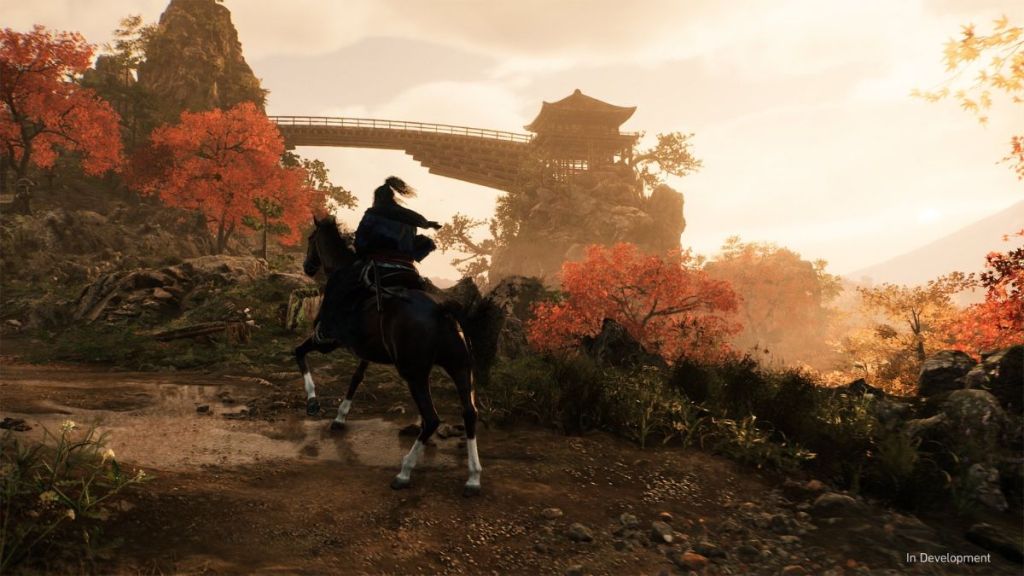
On the surface, it’s a fairly standard rebels vs empire type of situation. In practice, however, the situation has a surprising number of grey areas. For one, the rebels who I had assumed would be the easy pick had a lot more going on ideologically. Of course, there are idealists who believe in a free Japan and correctly identify the Americans and the British as profit-mongers, but there are others among the ranks motivated by iffier reasons.
For one, xenophobia: there are a couple big names among the Tobaku who don’t trust the Westerners simply because they’re foreigners, and pose a threat to Japan’s traditional values. Another seems to be a good person, but his intentions align more with furthering his own power in the country by establishing his own militia, and the rebel faction is the quickest way to that end goal.
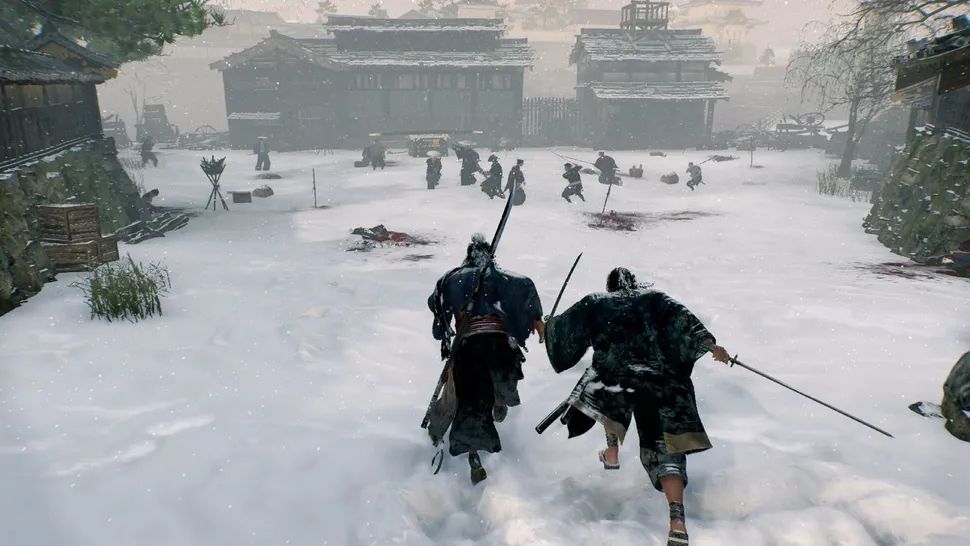
In fact, every character aligned with the Tobaku have their own unique reasons for supporting the cause, be it selfish or selfless, and that’s genuinely interesting. It’s an acknowledgement that much of history’s strongest political movements came about not necessarily through shared beliefs, but rather via a united goal. It makes for much more compelling drama than the simple two-sided affair that much of fiction likes to portray, and I like it! It helps that this is a ‘choices matter’ kind of game, so you’re expected to actually engage with the text and choose your allies wisely.
It’ll be weird to come off of this multi-paragraph gush about how much I genuinely like the story of Rise of the Ronin by declaring that it isn’t even close to being the best part, but here we go. The combat in this game is sensational, which is to be expected from the architects of the Nioh games. You’ve got a variety of movesets to choose from across many weapon types, and much of the fun in the game is figuring out which type is the best choice for any given encounter.
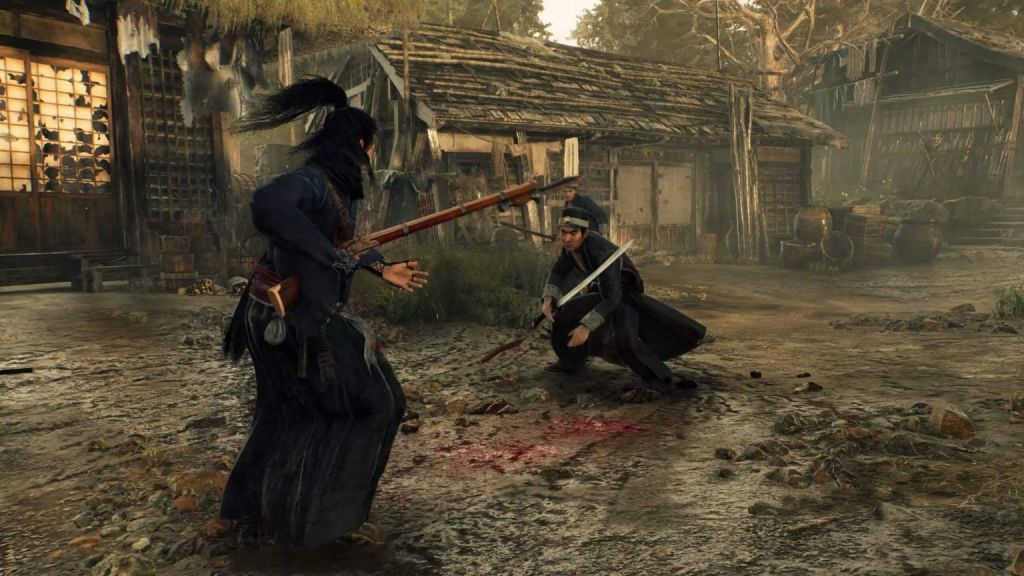
Generally, I’m a sucker for the oxtail sword – the fast, flashy swordplay makes my monkey brain go ooh ooh ah – but I’m an enjoyer of pretty much all the weapons. The main difference between them is speed and damage output, but the core combat mechanics are always enjoyable, expecting you to juggle stamina, health and maintaining ki all at the same time. It sounds intimidating (because it is) but once you get into a flow state with this moveset, it hits like the smoothest sake.
Getting around the open world is also incredibly satisfying. It’s a modern open world action game, so by law it must contain bandit camps to clear and collectables to find, but I think Rise of the Ronin is achieving the best version of that loop because the process of moving between points of interest is so enjoyable. It’s refreshing to play a game like this that simply embraces its own gaminess. Yeah, your horse will spawn anywhere you can summon it. Does it make sense that it can appear from nothing at the top of a mountain? No, but it is fun and fluid. It’s pretty unbelievable that your character possesses a grappling hook and hand glider in the mid-19th century which function perfectly, but consider how cool it is to fly through a valley, then call and land on your horse just before hitting the ground, losing none of your momentum. It’s such a game about having fun being an inhuman being defying the laws of nature.
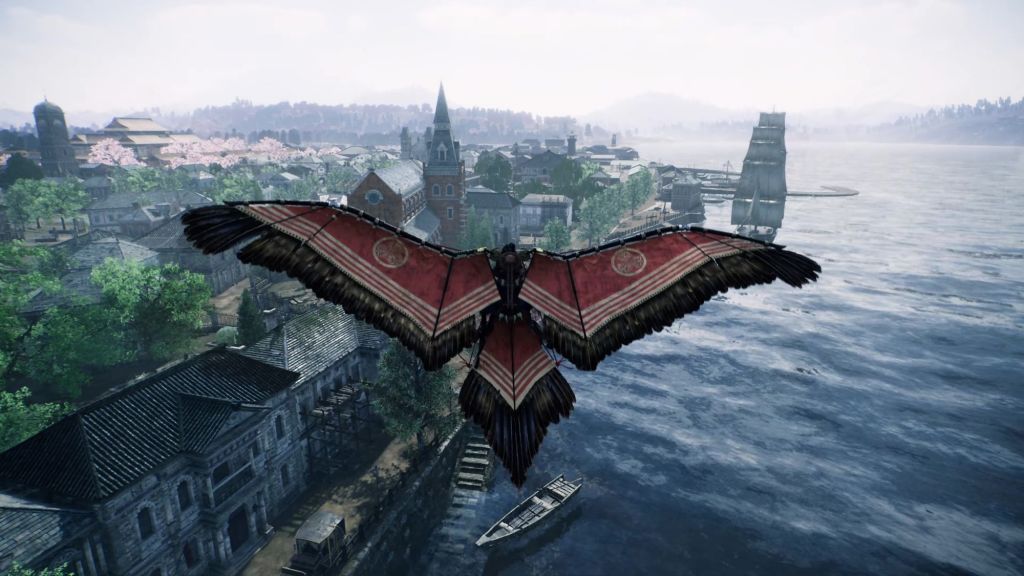
Then, with that power, where would you want to see Japan by journey’s end? It’s a great time.
But not the best time this month. That honour goes to the incomparable Dragon’s Dogma 2. I played the first game a little on a friend’s recommendation, but I must have gotten distracted with other games at the time and ditched it. A terrible mistake obviously, because its sequel is genuinely unbelievable. In a way, its brilliance is sort of indescribable. That isn’t to say I’m worried about spoiling the experience – it’s not really that kind of game – but rather that describing its mechanics on paper makes it kind of unappealing.
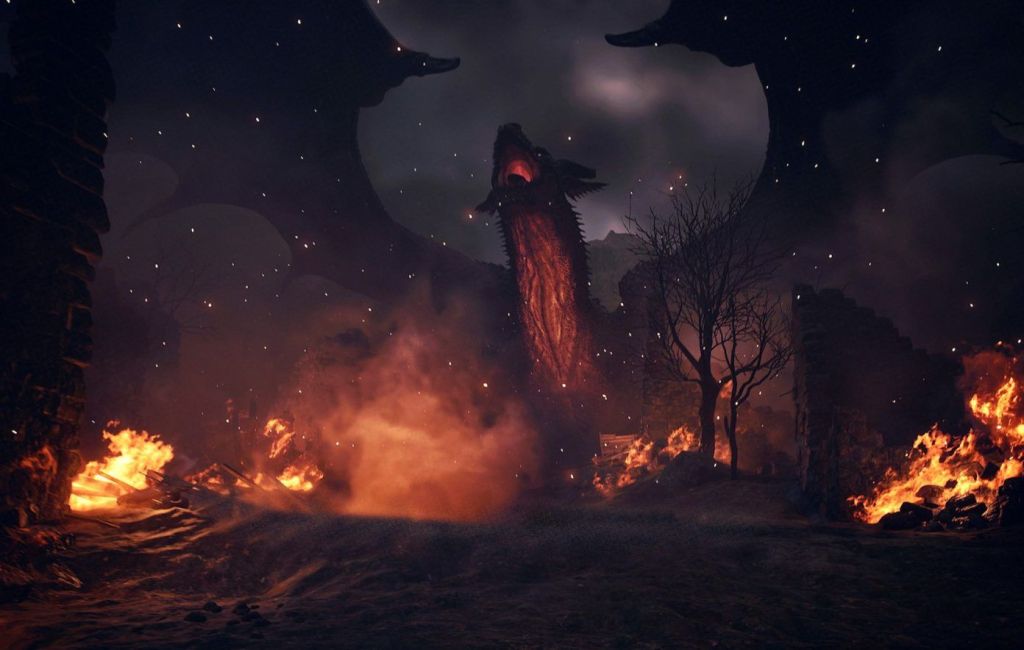
You are the Arisen, an individual whose heart is stolen by a dragon (literally, it yoinks the entire organ from your chest) and your destiny becomes to slay that same dragon, lest the land fall to ruin. The kingdom of Vermund normally has a tradition where the Arisen takes the position of Sovran and rules until the dragon is vanquished, but this is complicated by the presence of a opportunistic queen regent, who replaces you with a pretender so as to maintain her position of power, and secure the throne for her son. As such, you’re working with limited resources to get the job done, so a lengthy journey across the land awaits you. Can you slay the dragon and, in the process, solve some the world’s ills?
It’s a pretty standard Chosen One narrative on the surface, but it’s also interestingly not really the focus of the game. The main character here is the world itself; the game is so open-ended in how you choose to approach it that it ends up being one of the most freeform experiences I’ve had in a game. You get quests to follow, but the meat of the experience is in the how you choose to go about it. For example, if a mission tasks you with finding an NPC in a nearby town, you have to seriously consider your route, the equipment you’ll need to make the trip, where you can camp if night falls, since that’s when the really mean beasties show up, and so on.
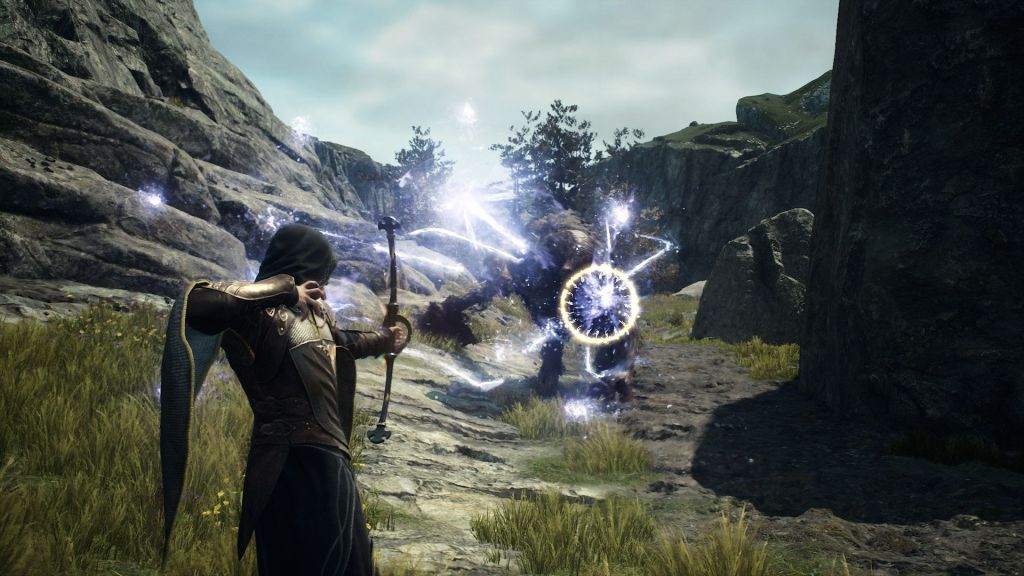
Dragon’s Dogma 2’s world has a real, tactile feel to it, where every choice you make, big and small, has some sort of weight; not in the narrative sense, like Rise of the Ronin, but in the way it impacts gameplay. You can choose to risk a fight with an ogre, but if it roughs you up too much, you’re putting yourself in real danger if you’re not able to find a campsite. Early on, I was offered a trip on an oxcart rather than walk the entire way to the city, but because I’m content-brained and didn’t want to miss anything, I elected to make the trip on foot instead.
This turned into an absolute nightmare situation. Nighttime came around, and I started getting attacked by phantoms I couldn’t hit, ambushed by lizards with hardened skin hiding in the shadows, and ganked by groups of skeletons throwing spells at me I’d never seen before. By the time I reached the gates of Vernworth, my pawns and I were battered and bruised in both bodies and souls, and an important lesson was learned: don’t dive pointlessly into danger unless you are confident you will win.
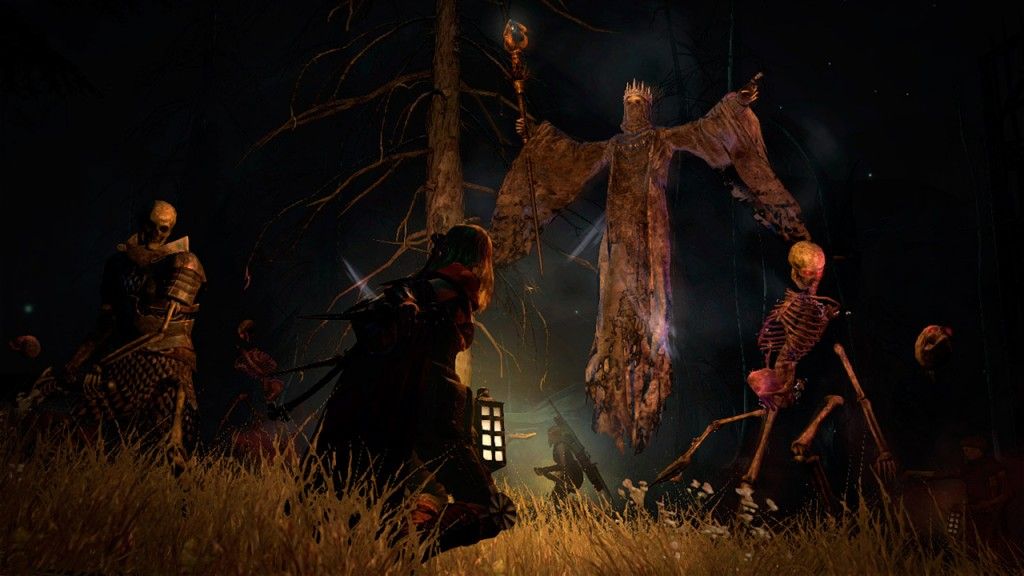
Dragon’s Dogma 2 isn’t even remotely interested in holding the player’s hand through its trials and tribulations; if you make mistakes or prepare yourself poorly, the game will not hold back on you. It creates this wonderful tension to every enemy encounter, and even just venturing out into the world at large, that never gets old. Every time I went down an unexplored path, I made sure to do a scan of my surroundings, how enemies were most likely to ambush, where chests or caves might be hiding, and so on. You develop such a respect for the world itself, and it helps that your options for fast travel are so limited, because it means the game demands that you learn its systems and navigation meta.
I absolutely adore DD2‘s approach to its setting because it does what many of my favourite games often do: it makes clear that the world does not revolve around you. The game refuses to bend over backwards to cater to your every whim, and instead expects you to learn its rules, and subsequently play by them. The game isn’t difficult for this approach, per se; rather, it wants you to engage meaningfully with everything it has to offer whenever possible, and it succeeds in this with flying colours.

I don’t want to say much more than that, because I have a whole review lined up that’ll hopefully be done within the next couple of weeks. For now though, that’s it! All the games I played this month, aside from others that I’m still playing from February like Banishers, and am yet to complete. This post went longer than I was expecting but I suppose I felt a little bad for not making more of a effort this month to diversify my playtime.
However, considering the April games lineup is looking a lot less stacked, I can hopefully jump into some indie games this month, and maybe wrap up other titles I’ve been meaning to finish for a while. I’m already playing a couple good new games I can’t wait to talk about in May, so keep an eye out for that. In the meantime though, have a lovely life, and I’ll be back with another post (hopefully) soon. Ciao!

Leave a comment